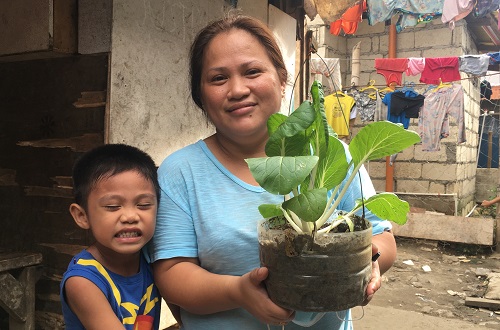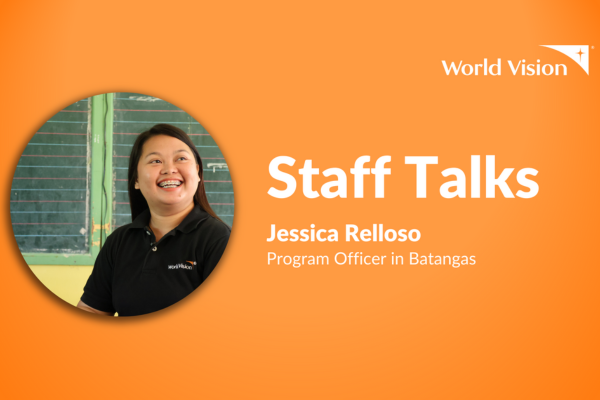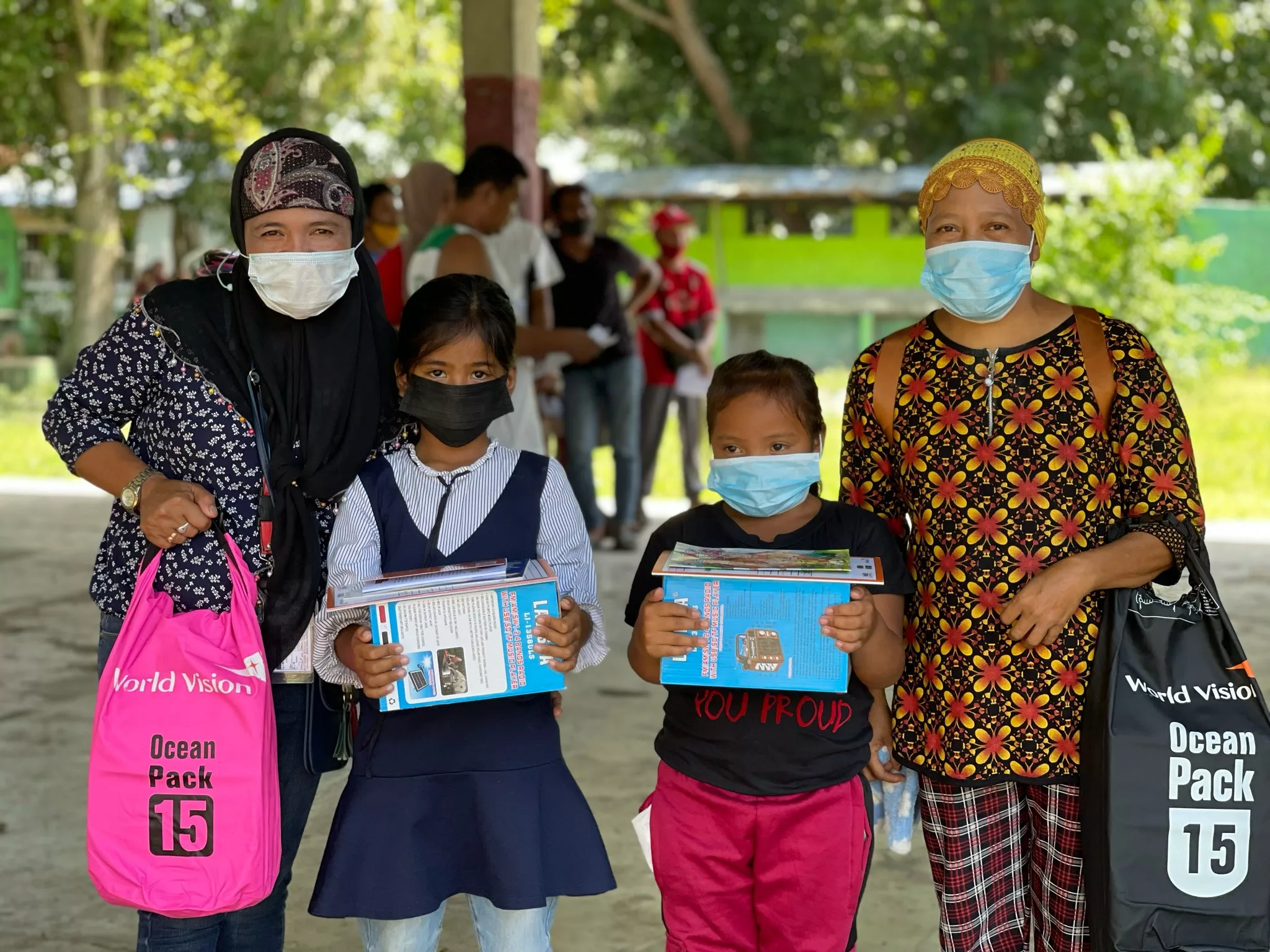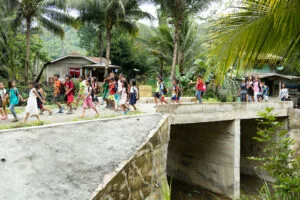A young boy learns to love his greens after joining a nutrition program
Earl, a young boy from an urban community in Mandaue City, was considered underweight by their community health worker in 2019. His mother, Mirafel, reasoned out that it was because of his lack of appetite for eating rice and nutritious meals.
“He wasn’t fond of eating solid food despite our effort to feed him. He only relied on drinking milk,” shares the 36-year-old mother.
Eventually, the boy’s eating habits affected his weight. It was recorded as below the average weight of a boy his age.
Earl’s nutrition was also affected when the pandemic happened. It started when the boy’s father, Erninio, who was a private fund collector lost his job because of the quarantine measures implemented in their city.
Without their main source of income, the family depended on the government’s aid. Mirafel managed the food supplies and cash assistance they received in a span of months resulting in limited food supply – which included the milk supply for Earl.
“I used the cash assistance from the government to buy vegetables and meat in the market but the prices increased during the pandemic and it came to a point that we could no longer afford it,” says the mother.
When the family’s last food supply from the government was about to run out, a project arrived in Earl’s community that supports children like him to recover from their nutritional demise.
The Urban Development Project (UDP), particularly the nutritional feeding and provision of urban gardening kits, is a project implemented by the partnership between Ramon Aboitiz Foundation Inc., (RAFI) and World Vision in Singapore and The Philippines.
UDP as the umbrella project started in early 2020 but the specific nutrition activities were implemented during the middle of the same year.
Earl was selected as a participant of the Urban Nutrition Hub, a systemized nutritional feeding activity that provides nutritious meals for undernourished children while providing health and nutrition lessons to their parents or guardians, including the provision of vegetable gardening kits and sacks of rice.
“I made the effort to bring Earl to our nearby town hall to join the feeding sessions for 12 straight days,” declares Mirafel. “During those sessions, my son learned to love eating vegetables. They served him various meals including soup, porridge mixed with vegetables, and meat viands,” she adds.
The mother also shares that Earl was encouraged to eat the vegetable meals because he could see other children who were enthusiastically eating their meals in the feeding sessions.
After 12 days, Earl graduated from the nutrition program. A positive change in his weight was also noticeable. According to their community health worker, the boy gained around 2 kilograms of weight. He already weighs within the average scale.

During the last session, Earl and her mother were surprised with vegetable garden kits including seeds of pechay, water spinach, and eggplant. They also received black soil that will be used for their planting.
Aside from the gardening kit, they also received a sack of rice which weighed 25 kilos. As part of the project’s requirement, Mirafel received an additional three sacks for three months because of her success in planting the vegetables.
“When I received the seeds and the soil, my husband and I really ensured that the plants would grow. These are blessings given to us and we wouldn’t want to waste it,” she shares.
At home, Earl who is already 4 years of age continued his good appetite alongside with his regular intake of vitamins that were also provided by the project.
“Kaon ko green, Mama (I would like to eat vegetables, mother),” is now the usual phrase of Earl every day according to Mirafel.
The family is grateful to RAFI and World Vision for bringing the nutrition project into their community.








